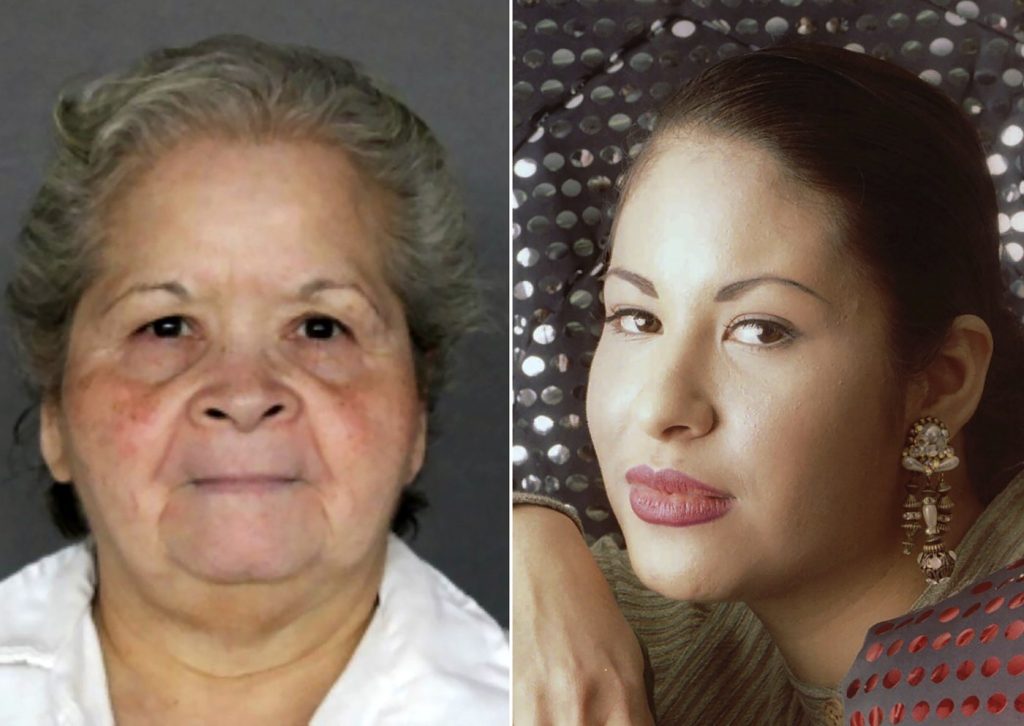Thirty years ago, music legend Selena Quintanilla-Pérez was tragically murdered by Yolanda Saldívar, the president of her fan club. Saldívar has since been serving a life sentence in Texas. As of now, at the age of 64, Saldívar is under review for a parole petition, marking her first opportunity for parole consideration.
This Sunday, her case will be evaluated, although the Texas Board of Pardons and Paroles has not announced a specific date for the decision. Details regarding the parole process and the implications for both Selena's legacy and Saldívar’s potential parole are crucial for understanding the current situation.
Who was Selena Quintanilla-Pérez?
Born in 1971, Selena Quintanilla-Pérez displayed exceptional musical talent during her childhood, leading her group, Selena y Los Dinos, alongside her siblings A.B. and Suzette Quintanilla. Her stardom skyrocketed in the early 1990s when she fused Tejano, pop, and cumbia musical styles, offering chart-topping hits such as “Bidi Bidi Bom Bom,” “Como la Flor,” “Amor Prohibido,” “No Me Queda Mas,” and “Tu Solo Tu.”
Selena broke barriers for women in Latin music and is known worldwide as The Queen of Tejano. She not only sang in Spanish but also spoke in English, embodying a cross-cultural identity that resonated with a diverse audience. Selena achieved significant recognition, winning her first Grammy in 1994 for best Mexican/Mexican-American album with “Live,” and she was only 23 when she was murdered in 1995. Her posthumous album “Dreaming of You,” released shortly after her death, charted at the top of the Billboard 200, containing hits like “I Could Fall in Love” and “Dreaming of You.”
Selena received a posthumous star on the Hollywood Walk of Fame in 2017, where the unveiling ceremony gathered the largest crowd recorded for such an event, surpassing previous ceremonies. In 2021, she was honored again with a posthumous lifetime achievement award from the Grammys.
Who is Yolanda Saldívar?
Yolanda Saldívar, a former nurse, founded Selena’s fan club and managed her clothing boutiques, Selena Etc. However, Saldívar was terminated from her position in early 1995 after discrepancies involving missing funds were uncovered.
How did Selena die?
On March 31, 1995, Selena went to Saldívar's room at the Days Inn motel in Corpus Christi, Texas, seeking business records for tax purposes. A violent confrontation therein led to Saldívar shooting Selena in the back with a .38-caliber revolver. Selena managed to run into the motel's lobby before collapsing, where she later died at a nearby hospital.
Witnesses testified that Selena identified Saldívar as her assailant during her final moments. In a subsequent standoff with police, Saldívar expressed regret, claiming, “I didn’t mean to kill anybody.”
What happened at Yolanda Saldívar's trial?
Due to extensive media coverage, the trial was relocated to Houston. Prosecutors argued that Selena was killed over suspicions of embezzlement, while the defense claimed that the shooting was accidental. On October 23, 1995, Saldívar was convicted of first-degree murder and sentenced to life in prison, eligible for parole after 30 years, beginning in 2025.
Saldívar did not receive the death penalty as the crime lacked aggravating factors outlined under Texas law. Despite multiple appeals, Saldívar's attempts to overturn her conviction have been unsuccessful.
How does parole work in Texas?
Texas's parole system involves a comprehensive review process that begins six months before an inmate's eligibility for parole. A case file review is conducted, and relevant parties, including victims’ families, are notified. An institutional parole officer interviews the inmate to compile a report for the parole board. The board then votes on the case shortly before the eligibility date, requiring a majority of two votes for a decision.
Notably, public parole hearings are not held in Texas, allowing for independent decision-making by board members. If Saldívar's parole request is denied, a date for her next eligibility will be set, while an approved parole could entail specific conditions she must comply with.
In the absence of a gubernatorial veto on parole decisions, clemency may still be granted by the governor following board recommendations. As of this week, representatives for Selena's family have not commented on the upcoming parole consideration.










